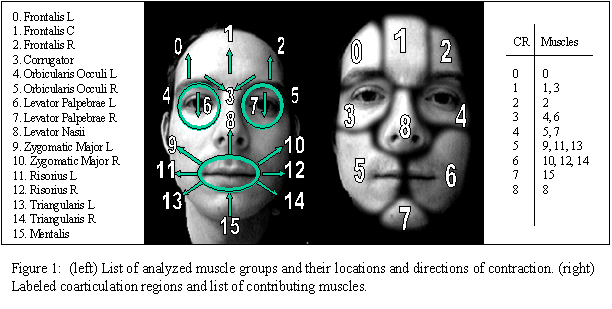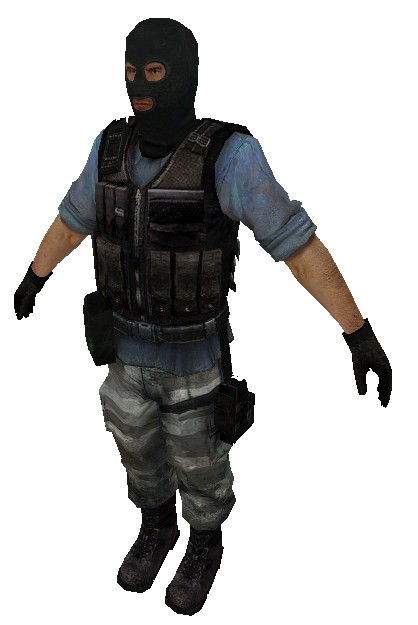| I guess from now on John will have to get around on a Greyhound bus! |
 |
Posted on 08/15/2007 7:39:06 AM PDT by Dan Evans
WASHINGTON — Next time you go to the airport, there may be more eyes on you than you notice.
Specially trained security personnel are watching body language and facial cues of passengers for signs of bad intentions. The watcher could be the attendant who hands you the tray for your laptop or the one standing behind the ticket-checker. Or the one next to the curbside baggage attendant.
They're called Behavior Detection Officers, and they're part of several recent security upgrades, Transportation Security Administrator Kip Hawley told an aviation industry group in Washington last month. He described them as "a wonderful tool to be able to identify and do risk management prior to somebody coming into the airport or approaching the crowded checkpoint."
The officers are working in more than a dozen airports already, according to Paul Ekman, a former professor at the University of California at San Francisco who has advised Hawley's agency on the program. Amy Kudwa, a TSA public affairs specialist, said the agency hopes to have 500 behavior detection officers in place by the end of 2008.
Kudwa described the effort, which began as a pilot program in 2006, as "very successful" at identifying suspicious airline passengers. She said it had netted drug carriers, illegal immigrants and terrorism suspects. She wouldn't say more.
At the heart of the new screening system is a theory that when people try to conceal their emotions, they reveal their feelings in flashes that Ekman, a pioneer in the field, calls "micro-expressions." Fear and disgust are the key ones, he said, because they're associated with deception.
Behavior detection officers work in pairs. Typically, one officer sizes up passengers openly while the other seems to be performing a routine security duty. A passenger who arouses suspicion, whether by micro-expressions, social interaction or body language gets subtle but more serious scrutiny.
A behavior specialist may decide to move in to help the suspicious passenger recover belongings that have passed through the baggage X-ray. Or he may ask where the traveler's going. If more alarms go off, officers will "refer" the person to law enforcement officials for further questioning.
The strategy is based on a time-tested and successful Israeli model, but in the United States, the scrutiny is much less invasive, Ekman said. American officers receive 16 hours of training — far less than their Israeli counterparts_ because U.S. officials want to be less intrusive.
The use of "micro-expressions" to identify hidden emotions began nearly 30 years ago when Ekman and colleague Maureen O'Sullivan began studying videotapes of people telling lies. When they slowed down the videotapes, they noticed distinct facial movements and began to catalogue them. They were flickers of expression that lasted no more than a fraction of a second.
The Department of Homeland Security hopes to dramatically enhance such security practices.
Jay M. Cohen, undersecretary of Homeland Security for Science and Technology, said in May that he wants to automate passenger screening by using videocams and computers to measure and analyze heart rate, respiration, body temperature and verbal responses as well as facial micro-expressions.
Homeland Security is seeking proposals from scientists to develop such technology. The deadline for submissions is Aug. 31.
The system also would be used for port security, special-event screening and other security screening tasks.
It faces high hurdles, however.
Different cultures express themselves differently. Expressions and body language are easy to misread, and no one's catalogued them all. Ekman notes that each culture has its own specific body language, but that little has been done to study each individually in order to incorporate them in a surveillance program.
In addition, automation won't be easy, especially for the multiple variables a computer needs to size up people. Ekman thinks people can do it better. "And it's going to be hard to get machines that are as accurate as trained human beings," Ekman said.
Finally, the extensive data-gathering of passengers' personal information will raise civil-liberties concerns. "If you discover that someone is at risk for heart disease, what happens to that information?" Ekman asked. "How can we be certain that it's not sold to third parties?"
Whether mass-automated security screening will ever be effective is unclear. In Cohen's PowerPoint slide accompanying his aviation industry presentation was this slogan: "Every truly great accomplishment is at first impossible."
"Surveillance 4: Winston thinks about how dangerous it is to allow your thoughts to wander when you are in public or facing the telescreen. Your facial expressions are watched closely and the wrong expression can have dire consequences. For example, looking disbelieving when a victory is announced would be facecrime."
Sounds like we’ve been getting some training from El Al security.
Good.
I feel safer already.
| I guess from now on John will have to get around on a Greyhound bus! |
 |
Frightening stuff. What if someone is having a really bad day. Besides, since traveling these days is usually a nightmare to begin with, how could they even tell?
-- George Orwell, 1984



No threat:

What's particularly galling is none of these TSA measures make anybody any more safe than merely allowing fellow passengers to notify somebody of suspicious activity.
The biggest danger to commercial aircraft is shoulder-fired missiles, but good luck getting them to admit.
The TSA is as useless as mammary glands on a boar hog.
Yes. It’s a good thing. Of course. We need to be safe. They won’t abuse the authority. And we can trust them.
Learning to read people is a skill that security personnel ~should~ have. "Having a bad day" is easy enough to spot, especially in airports, and it's pretty normal. This is a technique that El Al has been using for many years, and they're pretty good at it. It's one of the best and most useful ways to "profile" people that have a different agenda than merely getting to a destination.
This is a good thing.
Who would be unhappy after waiting in line for two hours to get on a plane? Who would show fear as several Imams rant about the Great Satan? Who would be disgusted at an elderly woman in a wheelchair getting a body cavity search?
You mean like the cop who arrested a guy because he looked too buff?
Abuse the authority? Nonsense. This is the sort of thing that security ~should~ be doing. Too much time and energy is spent trying to keep “things” off of airplanes when it’s not the “things” that are necessarily the problem. It’s the terrorist ~people~ that need to be recognized, not the nail clippers.
It’s not the gun. It’s the shooter.
Yeah, but who's watching the watchers? El Al isn't hiring Muslims to look for the terrorists like we do. They still have a bit of sanity left.
...and... isn't suspicious at all. Just like everybody else. You almost had it there.
But the guy planning to hijack the plane is going to act a bit differently and when you know what to look for, will stand out from the crowd.
What? You mean that you don’t trust TSA to keep us safe? The agency that won’t let you take water on a plane, and intrusively checks granny in a way that makes her cry? The agency which is forbidden to profile the way that Israel does?
Different problem. But you’re right about that.
Why is the family newspaper describing new airport security methods in detail? This is mostly a heads up for terrorists and other Democrats.
Disclaimer: Opinions posted on Free Republic are those of the individual posters and do not necessarily represent the opinion of Free Republic or its management. All materials posted herein are protected by copyright law and the exemption for fair use of copyrighted works.